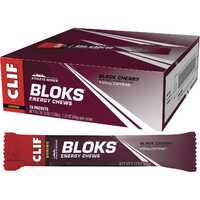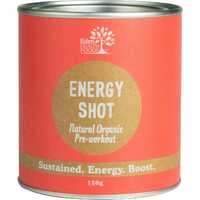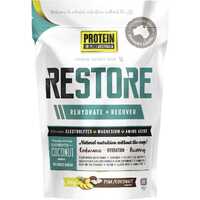If you haven't already done so, click here to read part 1 of this article.
The field of sports nutrition is concerned with food intake and how it powers athletic performance. The things you eat and drink impact every aspect of your fitness life, from motivation and energy to recovery and injury prevention. Whether you're a new fitness enthusiast or a seasoned professional athlete, paying attention to what you eat is the best way to maximise performance and stabilise long-term gains.
Also known as exercise nutrition, sports nutrition is a huge field linking physical activity with dietary intake. From strength to endurance training, from carbohydrate loading to protein supplementation, it's important to make healthy choices based on your individual fitness goals.
In part 1 of this article, we looked at the history of exercise nutrition, followed by nutritional categories and guidelines. In part 2, we'll review different training regimes, look at specific diet strategies, and discuss the importance of healthy foods and supplements.
Types of Training
Along with measuring the intensity of training regimes, like we did in part 1, exercise routines can also be defined by their intended outcomes. While everyone trains for a different reason, most motivations fall into one of the following four categories:
Weight loss and management
For lots of people, exercise is all about weight loss. If you want to lose some kilos for general health or shape up in time for summer, food has a vital role to play. While the amount of weight you're likely to lose depends on your age, starting weight, and underlying physiology, exercise and food can be combined to support weight loss efforts.
Most physical activities used for weight loss involve aerobic exercise. This type of physical exercise utilises the aerobic energy-generating process, which describes the use of oxygen to meet energy demands. Common exercises include walking, running, cycling, swimming, and jumping rope. Strength exercises can also be useful, with weight training routines able to raise your resting metabolic rate (RMR) or how many calories your body burns at rest.
In terms of food, it's important to consume a balanced natural diet without too many processed ingredients or unhealthy fats. Great food options include leafy green and cruciferous vegetables, low-fat meat and chicken, fish, eggs, beans, and legumes. To lose weight successfully, you need to consume fewer calories than you use in a way that's consistent and sustainable. It's not just about food; it's about setting up a healthy relationship between food, exercise, and lifestyle.
Strength training and body shaping
If you want to gain body mass, a different approach to exercise and food is required. Common examples of strength training include lifting free weights, using resistance bands, and doing bodyweight exercises like push-ups, pull-ups, squats, and crunches. Bodybuilding is an extreme example of strength training, and many studies have been performed in this field.
Foods and supplements have a huge role to play, with different ingredients consumed before, during, and after workouts. The best foods to build muscle are high in protein and low in saturated fat. Protein helps your body to grow, and it also helps muscles to repair themselves. You can't rely on protein alone, however, with carbohydrates and fats also providing much-needed energy generation and storage.
Protein shakes and supplements are very popular with strength-based athletes, either before working out or in the anabolic window 15-60 minutes after exercise. Consuming protein during this period helps your body to restock, with some types of protein also helping to repair muscle tissue that’s been damaged during exercise. Common sources of protein include red meat, poultry, fish and seafood, eggs, dairy products, and powder supplements. Popular protein powders include whey protein, soy protein, hemp protein, and casein protein.
Endurance or cardio training
If you want to boost your aerobic fitness, it's vital to eat and exercise accordingly. Fitness activities used to build endurance are similar to weight loss routines — only this time, they're a lot more intense. Instead of walking and jogging, endurance athletes may perform long-distance running, hill sprints, or cycling. High-intensity interval training (HIIT) can also be effective, with small periods of intense exercise combined with periods of rest and recovery.
Endurance sports can be very demanding, and they require consistent energy delivered over time. Whether you're running a marathon, playing a game of AFL, or cycling all day long, you need to keep your blood sugar levels stable by consuming a measured energy source. This process normally involves two distinct phases, with a medium-sized meal consumed up to two hours before you exercise and small snacks enjoyed while you're working out.
A healthy carbohydrate-rich meal is typically recommended before you exercise, including whole grains, vegetables, fruits, and yogurt. There are lots of great whole-grain foods, including cereals, whole-wheat toast, whole-grain pasta, and brown rice. From wheat and oats to quinoa and kamut, rich, complex carbohydrates help to fuel your body all day long.
Functional and flex training
Functional training is a practical approach to fitness that focuses on daily movements and activities. Instead of ultra-strength or extreme endurance, this type of training is about meeting the needs of everyday people. Functional training includes specific exercises for balance, flexibility, and agility; and it also focuses on functional strength and healthy posture.
This type of training is a useful way to boost athletic performance and prevent injuries, and it's also relevant for everyday tasks. Our bodies perform just four functional movements, and each one needs to be addressed: pressing, pulling, bending and stepping, and twisting and turning. Functional training is best fuelled by a balanced diet, including a healthy mixture of macro and micronutrients.
To ensure functional fitness, it's important to eat a balanced combination of protein, carbohydrates, and healthy fats. A natural diet is also important, with fresh meats, vegetables, fruits, and grains working much better than processed foods full of additives. Along with eating a balanced diet on a consistent basis, a regular supply of supplements and superfoods can help to boost your functional fitness. Popular examples include protein bars and balls, hemp seeds, chlorella, spirulina, acai, and many more.
Specific Diet Strategies
Eating a balanced diet and following a regular exercise regime is the best way to ensure optimal health. If you're looking for specific gains, however, certain nutritional strategies can prove beneficial. The following diet strategies are commonplace among athletes, and they can also be successfully adopted by everyday people:
Carbohydrate loading
Carbohydrate loading is a diet strategy often used by athletes in the lead-up to competition. Carb loading is particularly popular among endurance athletes, including marathon runners and triathletes. However, it can prove beneficial for any event that goes for 90 minutes or longer. Carbohydrate loading helps to maximise the storage of glycogen in the muscles and liver, saturating endogenous stores to help avoid depletion during the event.
In a traditional carb-loading scenario, athletes consume a low-carbohydrate diet for three or four days, combined with lots of exercise to deplete internal glycogen stores. This depletion phase is followed by three or four days of high carbohydrate ingestion and a decrease in exercise to promote the supersaturation of muscle glycogen.
Protein boosting
Protein-boosting and supplementation diets have become very popular over recent years. Consuming protein offers benefits before and after exercise, as it induces a significant rise in muscle protein synthesis. Protein helps to build muscle, increase metabolism, and burn calories, among other benefits. From lean meats to protein shakes, powders, and bars, there are lots of ways to boost your protein levels.
Consuming protein immediately before, during, or immediately after a training session is not enough, however, with regular protein ingestion needed throughout the week for the biggest benefits. Extra protein is particularly useful for strength training or after long bouts of exercise, as it helps to promote muscle repair and glycogen replacement during the recovery phase.
Electrolyte intake
Fluids are an essential part of every training routine, both while you exercise and immediately after. Along with ensuring a regular supply of water, electrolyte drinks can be consumed to great effect. Electrolytes are chemicals that conduct electricity when dissolved in water, with the most common examples including sodium, potassium, magnesium, and calcium.
Electrolytes are consumed by athletes for many reasons, with dedicated drinks used to sustain body water and fuel essential physical functions. They're essential for many things: regulating nerves and muscles, hydrating the body, and balancing blood acidity. Electrolyte deficits can increase cardiovascular and thermal strain, which can massively degrade aerobic performance.
What Foods Are Used for Sports Nutrition?
When eating for fitness, there are lots of important choices to make. Along with what you eat, you need to think about when to eat and how to combine different ingredients for maximum effect. When planning your diet, it's important to focus on healthy foods and boost performance with supplements and dedicated sports products.
Healthy food first
Eating a healthy diet is the foundation of every fitness plan. Good food helps to fuel basic physical functions, with macro and micronutrients helping with everything from energy production and regulation to muscle growth and repair. It's important to consume lots of healthy natural ingredients, avoid or limit heavily processed foods, and watch your intake of sugar, salt, and unhealthy fats. Hydration is also incredibly important, so drink lots of water, limit your alcohol intake, and enjoy electrolyte-rich products while you're working out.
Supplements and sports products
Supplements also play an active role in sports nutrition. While you can — theoretically — get everything you need from food alone, supplements and dedicated sports products provide a great nutritional boost. From protein powders and shakes to bars, balls, and bites, good sports supplements help to fuel your body so you can power through your next workout. Supplements pack lots of nutrients into a small and efficient package. They can help to boost an already healthy diet, and they also function as a convenient on-the-go energy source.
If you're looking for quality sports nutrition products at a great price, Healthy Being has everything you need. We have protein powders, energy shots and chews, sports drinks and shakes, and delicious bars and balls for you to enjoy. So check out our website today and discover the very best products from industry leading brands, all at discounted prices. Shop now and enjoy free shipping options Australia wide and worldwide delivery!


 Certified Organic
Certified Organic Vegan Friendly
Vegan Friendly  Vegetarian
Vegetarian Organic Ingredients
Organic Ingredients Dairy Free
Dairy Free Gluten Free
Gluten Free Keto Friendly
Keto Friendly


































